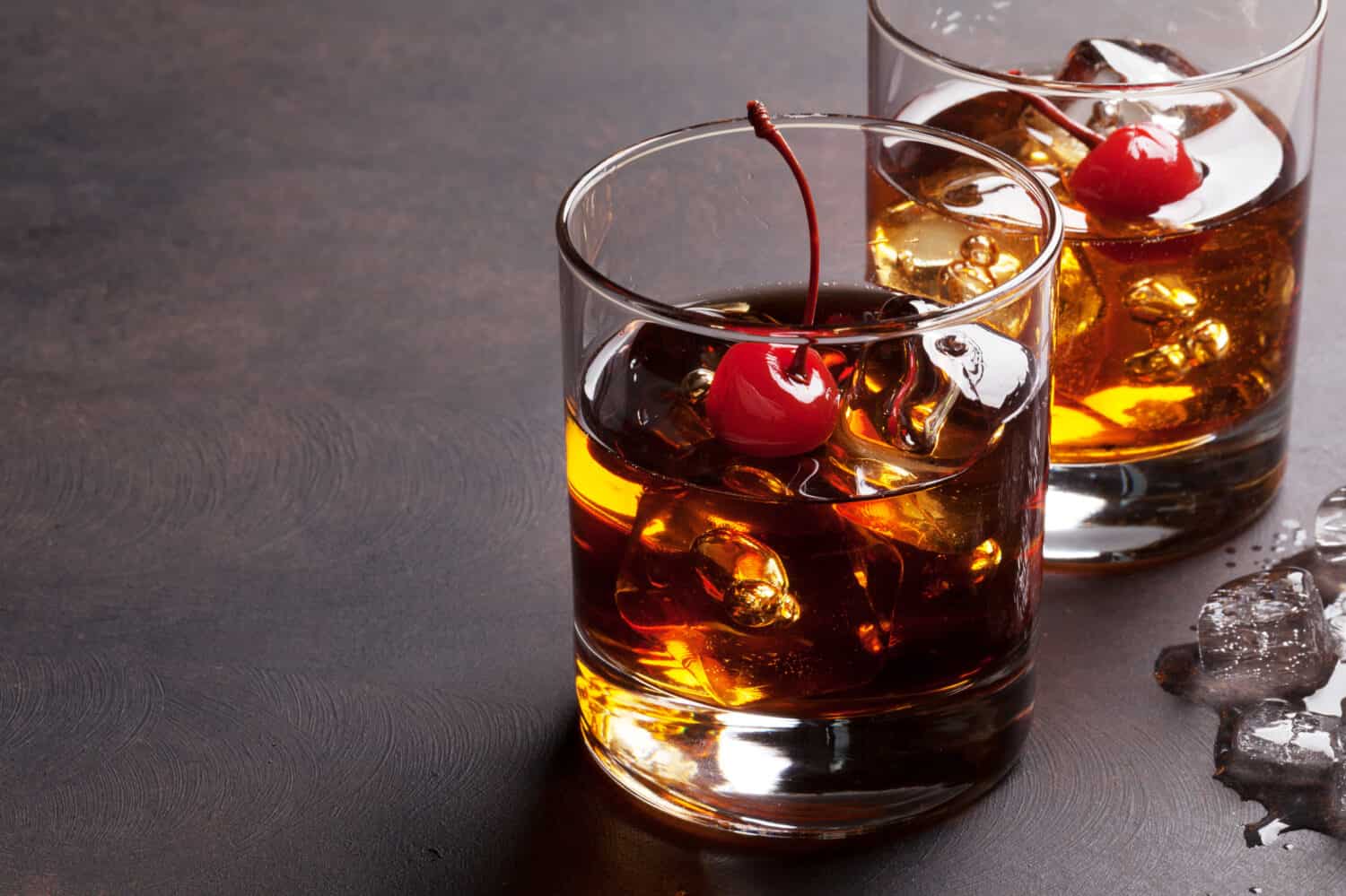If you’ve ever been stumped on the differences between scotch vs. whiskey, you’ve come to the right place. The easiest answer is that they are both a type of whiskey. However, their differences are significant enough to warrant a rundown. There are four major differences between scotch vs. whiskey. These include the aging process, the resulting flavor, the type of grain, and if the grain is smoked before the distillation takes place. There are numerous kinds of scotch-specific whiskey. And there are all kinds of ways in which whiskey is made to produce different flavorings.
In this post, we’ll discuss the differences between scotch vs. whiskey. You’ll learn about the history of this alcohol and the many ways in which it is processed and used today. Whether you’re looking to learn more for your next cocktail evening, or just have a vested general interest, we’ll give you a thorough run-down of the scotch vs. whiskey debate. So, keep on reading to learn more about this ambery, alcoholic, distilled liquor.
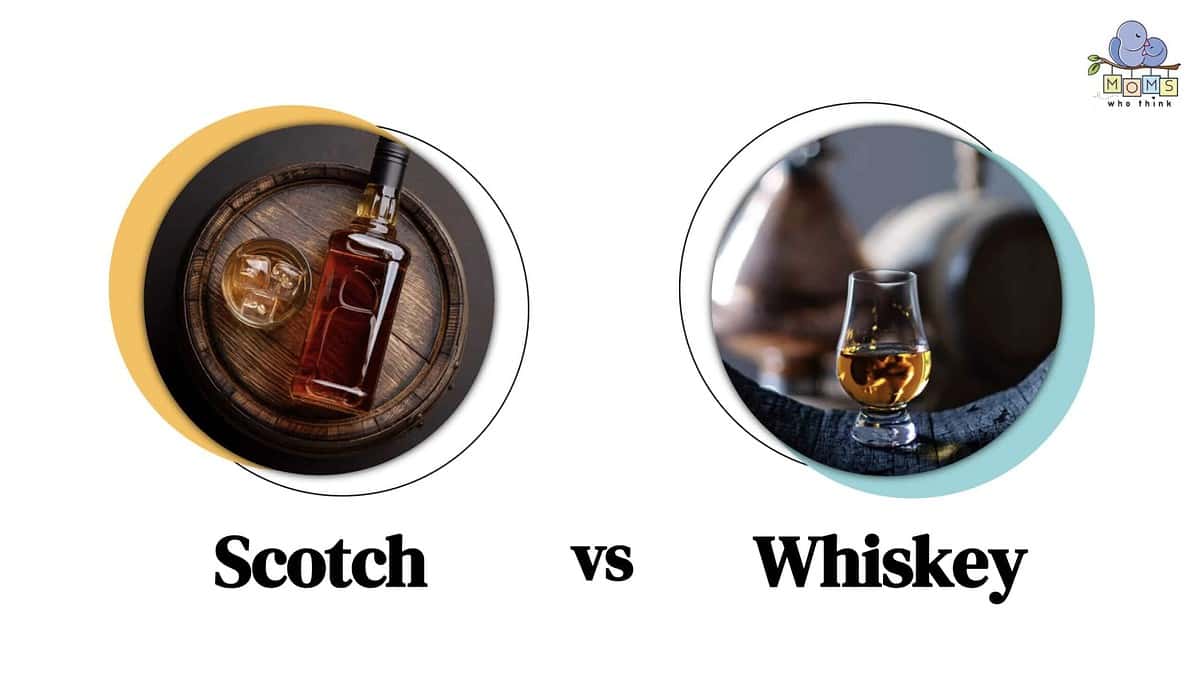
©
Scotch vs. Whiskey: How Are They Different?
While scotch is a type of whiskey, they are still different things in a way. “Scotch whisky” is missing the ‘e' in “whiskey.” Whiskey without an “e” is produced specifically in Scotland (Japanese and Canadian varieties are also spelled whisky.) To be considered “scotch whisky” it must be entirely produced in Scotland (via Eater). While they are all types of distilled liquors made from a base of fermented grains, the grains go through different processing. Basically, certain grains are used for certain types of scotch vs. whiskey. The resulting flavor is also quite different, with scotch reportedly smokier. Other whiskey types are often smooth to the finish. Let's get into more of the specifics between scotch vs. whiskey.
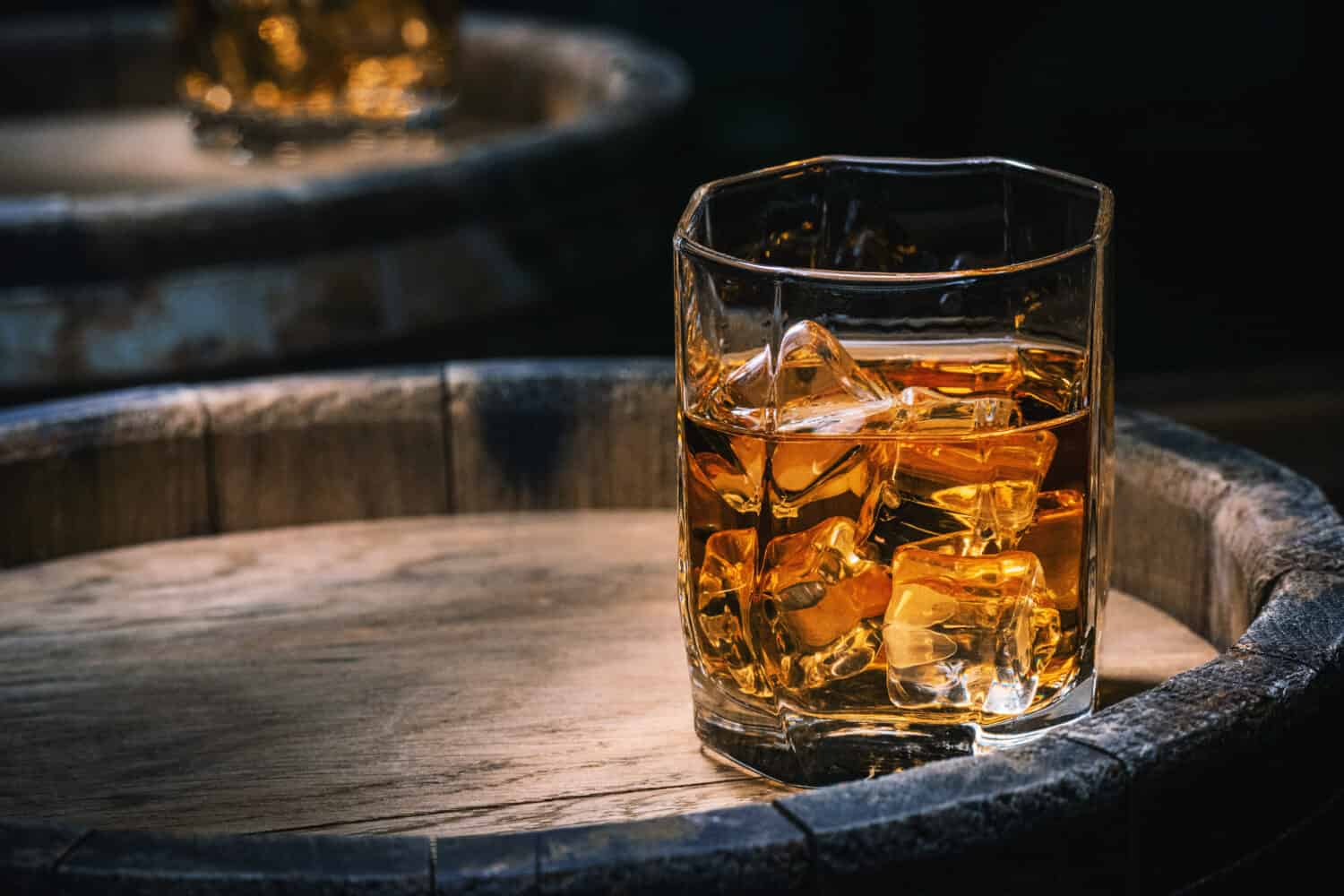
©Prilutskiy/Shutterstock.com
What Is Scotch?
Scotch is a type of Scottish-made whisky that typically uses malted barley which can undergo fermentation and smoking. The barley is malted, which is the process of allowing the grain to sprout, releasing sugars that will speed up the overall production of alcohol. The malted grains are then traditionally heated over a peat fire, which gives scotch whiskey its smokey flavor. According to the Scotch Whisky Association, scotch must age for a minimum of 3 years in oak barrels.
More modern techniques for Scotch creation will include grains other than just malted barley. There are also ways to infuse the alcohol with specific kinds of smoke using wooden boards, woodchips, or infusers. Common smoke flavorings include maple, hickory, and classic oak. The two kinds of Scotch whisky refer to the type of grain that is used, either malt whisky (barley) or grain whisky (other kinds of cereal grains). There are a few major geographical locations in Scotland that distill whiskey; these are Lowland malt whisky, Highland malt whisky, Speyside malt whisky, Islay malt whisky, and Campbeltown whisky (via The Scotch Whisky Experience).
History And Origin of Scotch And Whiskey Production
The origins of Scotch whisky date back to the 15th century, with tax documents showing the existence of a distillery in Scotland. The Scottish parliament introduced taxation on whisky in the 1600s, which led to an increase in illegal Scotch-making techniques and distilleries. This continued throughout the 1800s, but Scotch whisky was such a beloved drink, that even Scotland's famed bard “Robert Burns” wrote an ode to how the whisky made him and his kinsmen feel. Eventually, the Duke of Gordon helped propose to Scotland's House of Lords to allow for legal whisky production. They passed the Excise Act in 1823 which allowed for whisky distillation with a license and tax per gallon (via Scotch Whisky Association).
Over the years techniques for efficiently producing whisky grew with the demand. A method called the “Patent Still” allowed for continuous distillation which opened the door to other kinds of whisky production. Using grains instead of just malt made the flavor a bit less intense. When blended and smoked, it created new flavors of whisky that could be sold to whisky enthusiasts for a pretty penny. Imperialism and trade routes helped Scotch get out of Scotland, and lasting through prohibition, Scotch whisky, and other regional whiskeys continue to be a favorite liquor all around the world.
How Scotch Is Made
Scotch, made in Scotland, is made through the process of malting, mashing, fermenting, and eventual distillation. Traditional methods use malted barley, which involves steeping barley grain in water so it can germinate. This process converts starch to sugar, and once germination is done the germinated seeds are dried in a kiln. Sometimes peat is added to add that classic smoky flavoring of Scotch.
For grain alcohol, the mixture is 10-20% of the germinated “malted” barley plus other unmalted cereal grains. Corn and wheat are often used. The dried and smoked malted grain gets ground up and turned into a mash with hot water. This sugary, grain water is known as “wort,” before being fermented which creates a higher alcohol content for the longer it sits. This mixture goes into a still where it is heated, and then distillation involves separating the water, yeast, residue, and solids, with the alcohol produced. The distilled alcohol goes into oak casks where it will begin its mandatory 3 years of maturation.
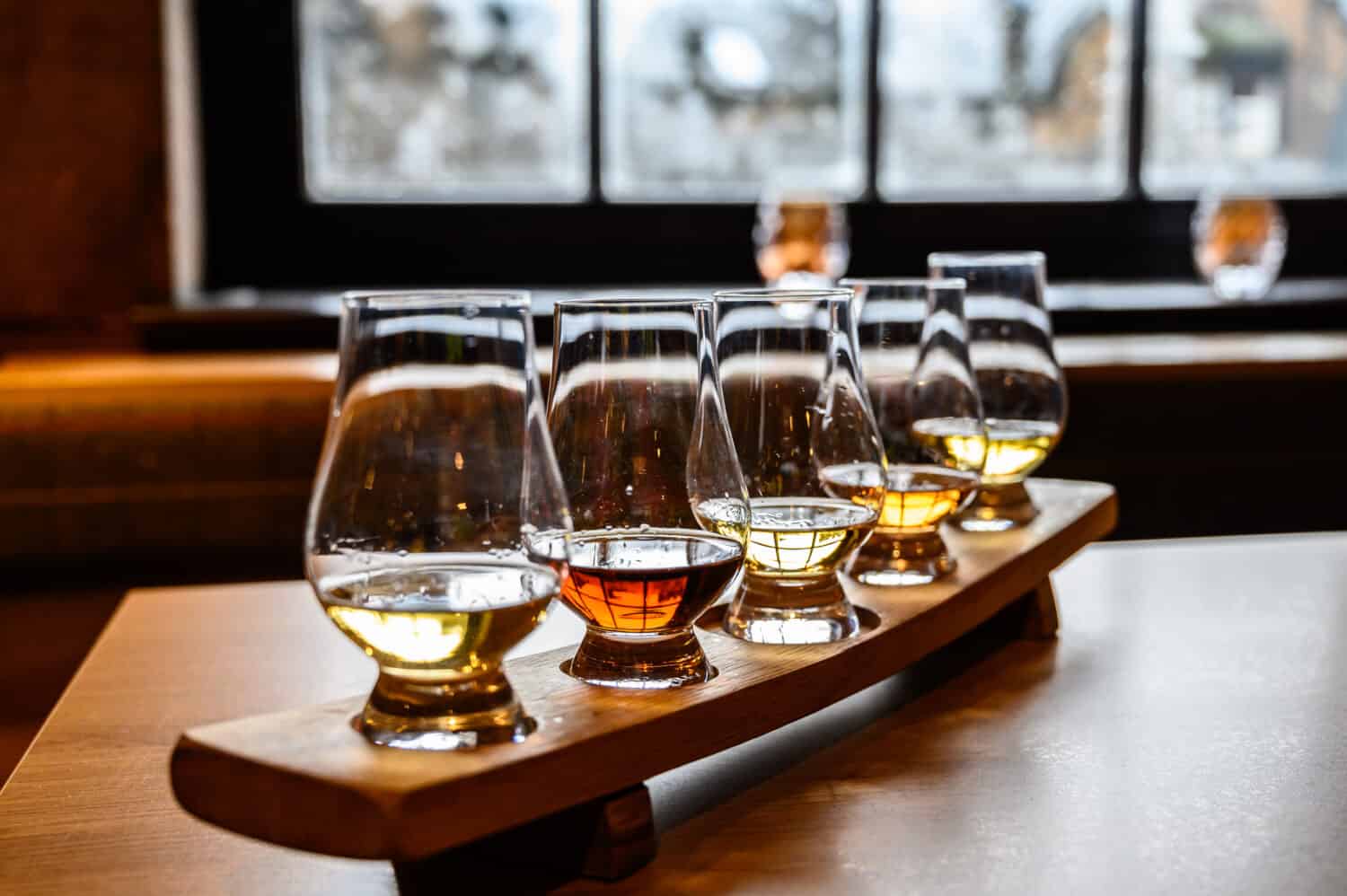
©barmalini/Shutterstock.com
What Is Whiskey?
Whiskey is considered the alcoholic varieties that are made in the United States and Ireland. It is processed grain alcohol that goes through a process of fermenting, mashing, distilling, and aging. Like Scotch whisky, Whiskey is ambery gold in color, and different grains can impact its overall flavoring.

©Jag_cz/Shutterstock.com
How Whiskey Is Made
Similar to Scotch, whiskey comes from cereal grain. This grain goes through the process of germination for sugar content, which is then extracted in the mashing step and blended into a concoction called “wort.” Next comes fermentation to turn the sugars into alcohol, then distillation, then aging. American whiskey has a minimum of two years in oak barrels, though a whiskey's flavor profile shouldn't change that much after a certain point (via Whiskey Shop.)
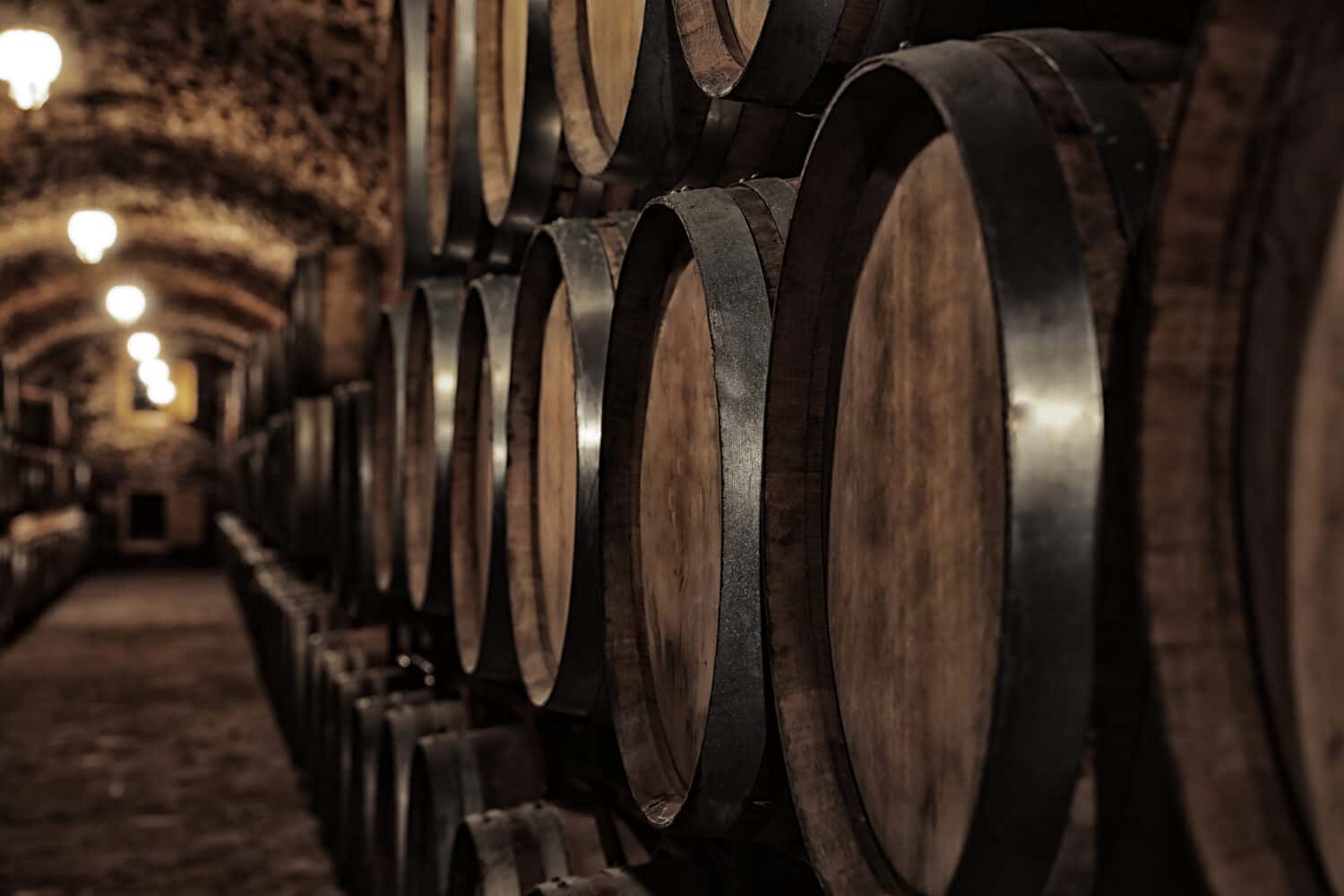
©New Africa/Shutterstock.com
Are Scotch vs. Whiskey The Same Thing?
The long and short of it is that whiskey, and whisky are types of the same thing, however, they have four major differences that set them apart. Traditional scotch uses only malted barley, while other kinds of whiskey will use other cereal grains as a base. Scotch has a smokier flavor that comes from the peat used to dry out the fermented malt. Whiskey is described as much smoother in taste, due to a lack of smoke exposure. Other kinds of smoke may be infused in types of Scotch in lieu of using a peat fire. They also have different aging ranges, despite both liquors being aged in oak barrels.
Possible Alternatives To Scotch And/Or Whiskey
A common alternative to scotch and/or whiskey is bourbon, which has a similar taste. Bourbon is also a corn-based alcohol and must be U.S. made to be considered bourbon. Mezcal tequila also features a smokey flavoring with strong alcohol content. The other primary liquors to try out would be brandy, vodka, rum, and gin. For non-alcoholic options, Food52 has quite a few alcohol-free whiskey substitutes. Spiritless’s Kentucky 74 features a strong oaky, smokey taste, and Lyre’s American Malt imitates a sweet vermouth wine. There's Monday Zero Alcohol Whiskey, which tastes a lot like whiskey sans the alcohol, The Spirit Of Bourbon By Free Spirits non-alcoholic bourbon, and the Ritual Zero Proof Whiskey Alternative. This is all to say, there are lots of ways to substitute out full proof whiskey and Scotch for both alcoholic and non-alcoholic options.
Scotch vs. Whiskey: Final Thoughts
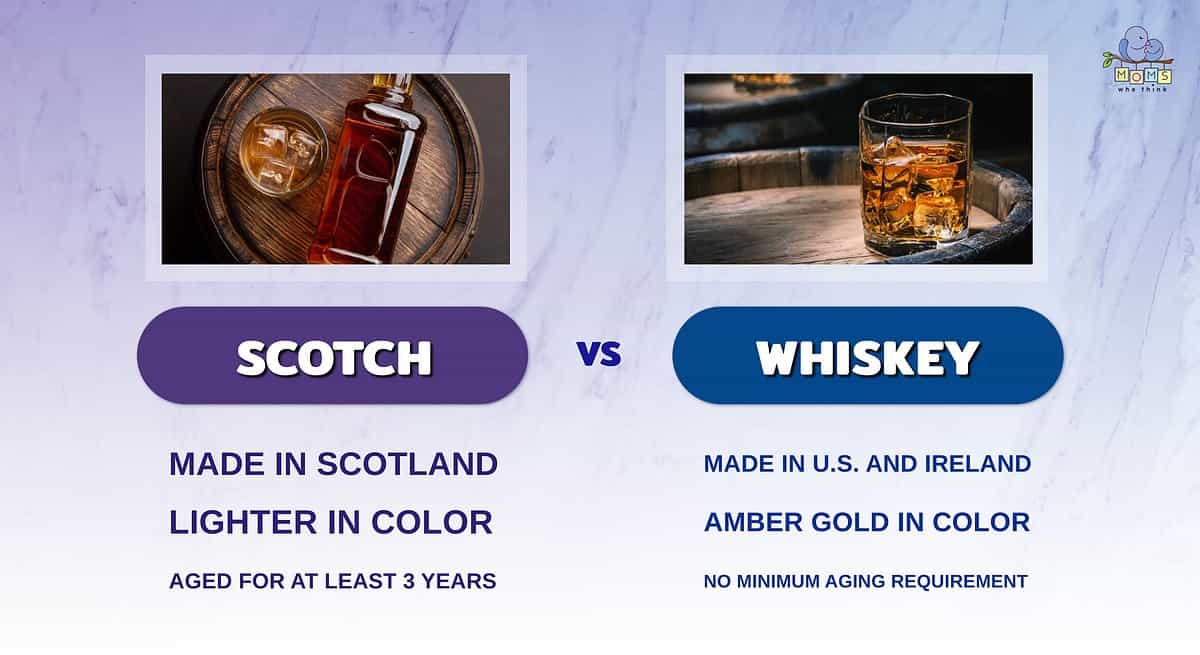
Scotch and whiskey are similar. Scotch is a type of whiskey only made in Scotland, and whiskey can be made anywhere. Even though they are similar, there are a few differences. Those differences include:
- Scotch has to be aged for at least three years.
- Whiskey doesn't have a minimum aging requirement.
- Traditional scotch uses malted barley, and whiskey uses other cereal grains.
- Scotch has a smokier flavor, and whiskey has a smoother taste.

The Classic Hot Toddy
Ingredients
- 12 ounces of your favorite brown liquor (brandy, whiskey or rum)
- 8 Tablespoons honey
- 4 ounces lemon juice
- 8 cup hot water
- cinnamon sticks and star anise for garnish
Instructions
- Heat water in a large saucepan.
- Add the liquor, honey and lemon juice, stir to combine.
- Divide evenly between 8 warmed mugs.
- Garnish with a cinnamon stick or star anise.
The image featured at the top of this post is ©Evgeny Karandaev/Shutterstock.com.
